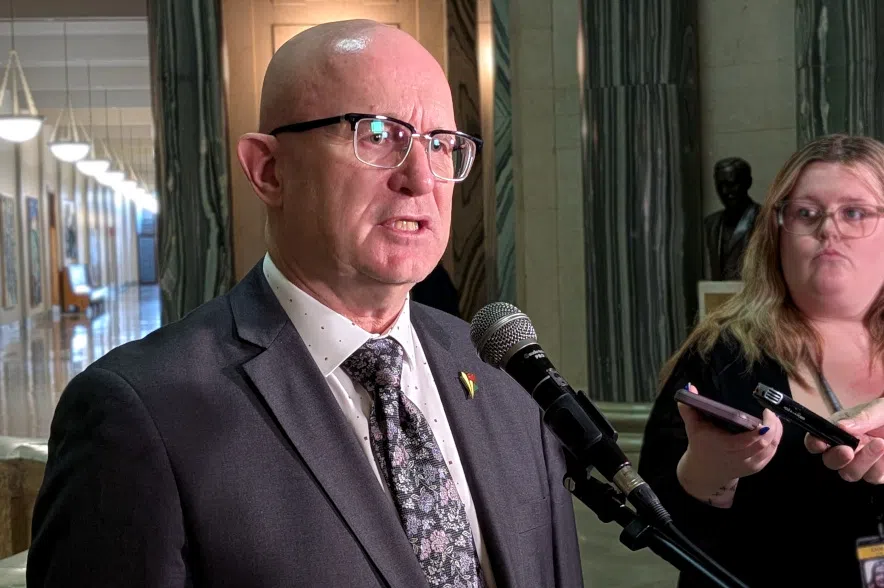Things aren’t crystal clear for the Government of Saskatchewan after the United States partially pulled back the tariffs it imposed on imports from countries around the world.
Speaking to reporters on Wednesday afternoon after President Donald Trump paused his so-called “reciprocal” tariffs on most nations for 90 days, Warren Kaeding, Saskatchewan’s trade and export development minister, said there is a lot of confusion when it comes to the tariffs.
Read More:
- Trump’s partial tariff pullback doesn’t affect duties on Canadian imports
- Trump limits tariffs on most nations for 90 days, raises taxes on Chinese imports
- Talks with Americans helped Canada avoid extra Trump tariffs: Saskatchewan premier
“It’s a very fluid situation,” Kaeding said.
“I know our officials are still trying to go through and try to determine exactly where we’re at with the latest announcement, but from what we understand initially… we are currently on the same path that we were.”
Trump has kept in place his 10 per cent levy on nearly all global imports, and a White House official said duties against Canada were unchanged in Wednesday’s announcement.
That means fentanyl-related tariffs on Canadian goods, as well as levies on automobiles, steel and aluminum, remain in place.
Kaeding said the day-to-day changes in the tariff landscape make things challenging for the provincial government.
“I would say certainly this level of uncertainty is something everyone is trying to get in front of,” Kaeding said.
“But it is difficult to have a plan when, ultimately, it is such a fluid situation.”
He said the government is still trying to understand the full impacts of the trade war with the United States.
“It certainly creates an awful lot of uncertainty that we’re trying to manage on on a daily basis; certainly just interpreting what the effects of these tariffs are going to be and ultimately how they’re going to affect our stakeholders, or our producers, or our companies that exist here in Saskatchewan,” the minister explained.
Kaeding said the Government of Saskatchewan’s “cautious but firm approach” has been “very successful to date.”
“I’d say some of the results you’ve seen in tariff reductions or eliminations have been a result of us taking that cautious yet firm approach,” he said.
He said it is important to remember that the U.S., Canada, and Mexico are fully integrated markets.
“Every time that we make a change or move on something, it could ultimately affect the relationship internationally between Mexico and the U.S.,” he said. “We need to be very, very aware of that.”
–with files from 980 CJME’s Lisa Schick and the Canadian Press











